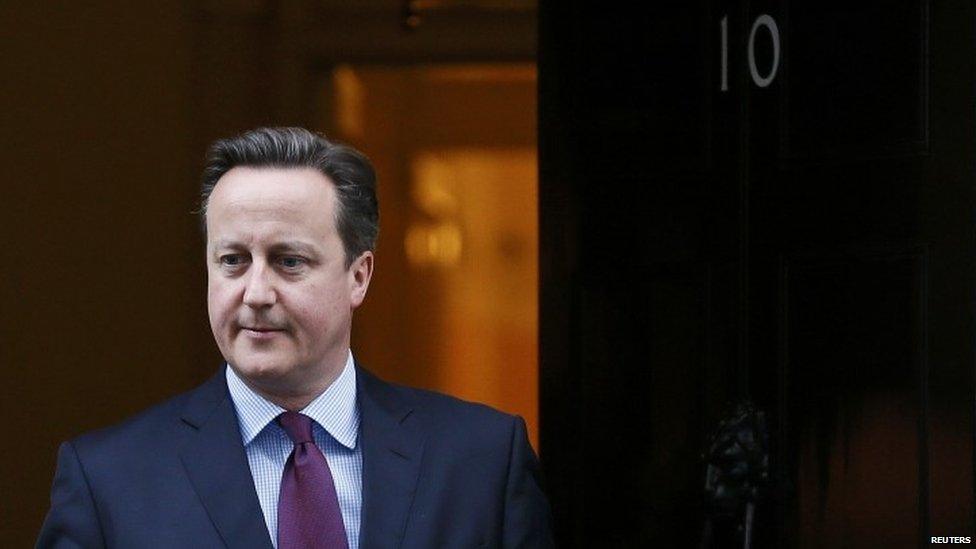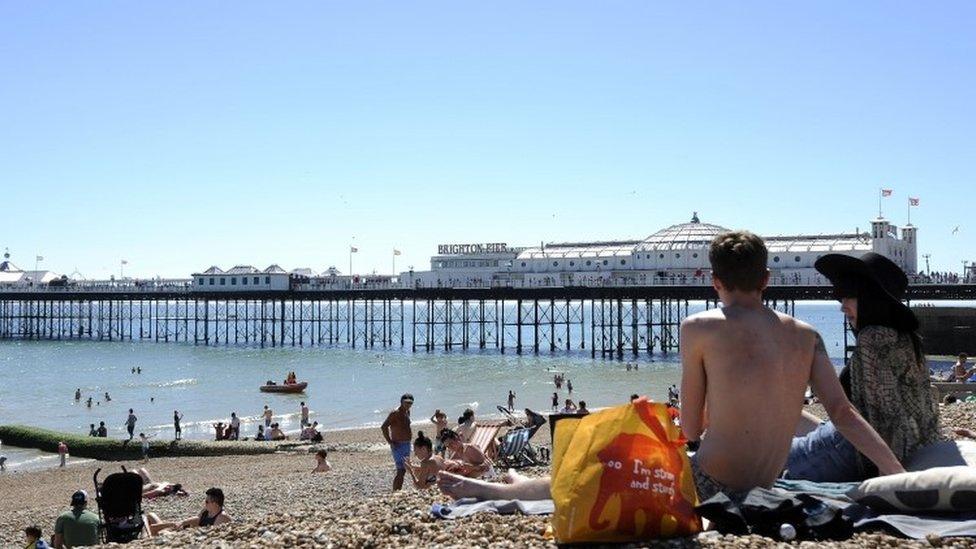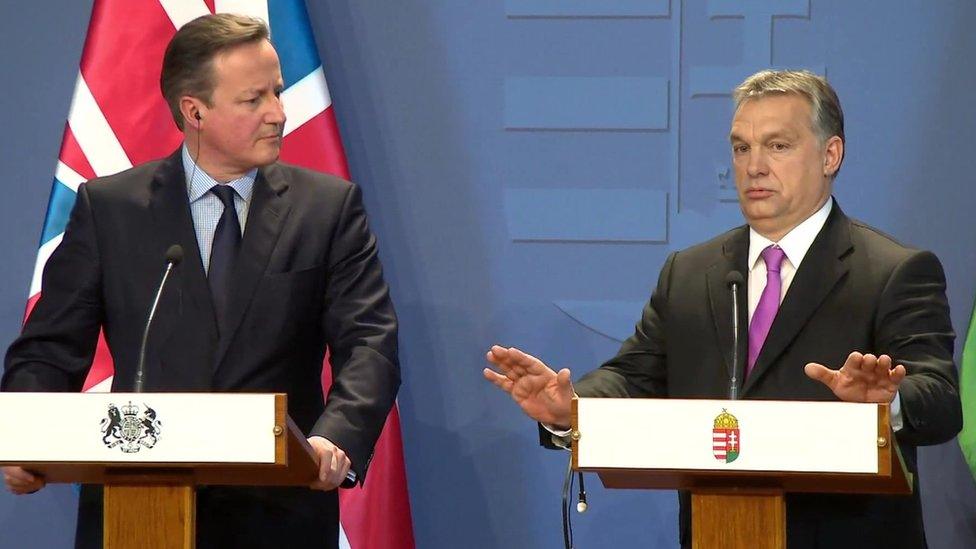EU referendum: Guessing game over poll date continues
- Published

The prime minister is said to want a poll in 2016
Guessing when the referendum on the UK's EU membership will be held is Westminster's current favourite parlour game.
Amid all the speculation, one could be forgiven for saying that only one man - David Cameron - knows when the public will be asked to vote on whether to stay in the European Union or to leave.
After all, it is he - and he alone - who will make the final decision.
But that doesn't tell the whole truth either. The timing of the referendum hinges on when other EU leaders agree to his proposed changes to the UK's relationship with the EU, a decision which is largely out of the prime minister's hands.
Current speculation is centring around June, July or September this year with few thinking it could be next year - but anything is possible.

What's wrong with next year?
Mr Cameron has pledged to hold the referendum before the end of 2017. Although Downing Street has, in public, strived to appear non-committal on the timing, it is widely known it would prefer to hold the poll in 2016.
Why is this? 2017 is considered politically problematic for a number of reasons.
The UK wants to avoid a clash with elections in France and Germany in the Spring of 2017. It also wants to avoid the vote turning into a "mid-term" referendum on the government, where the outcome could be swayed by a range of other factors.
The earlier the referendum takes place, such is the received wisdom, the less chance of this happening.
By leaving it until 2017, David Cameron - who is likely to back continued EU membership - could be left at the mercy of events, such as a worsening of the migrant crisis in Europe that might not play well for those backing the status quo.
While some argue that the date of the poll will make little difference to the ultimate outcome, there are plenty of others who believe "going early" will benefit the Remain campaign, while a later poll will favour the Leave campaign.

So, if it is going to be this year, can we narrow it down any further?

July and August are unlikely with people's thoughts elsewhere
Yes, but only slightly. The PM has already ruled out holding it in the first week of May, the traditional time for elections, to avoid a clash with polls for the Scottish Parliament, Welsh Assembly and Stormont Parliament.
If he gets an agreement on his reform demands in February at a summit of EU leaders, a referendum could be held in June. But that could be tight.
Once an EU agreement is reached, Parliament will need to pass secondary legislation authorising the date of the referendum and other campaign-related details. This hiatus is likely to take four to six weeks.
David Cameron has said he believes at least three months should then elapse before the vote is held, to ensure the campaign is fairly conducted and both sides have enough time to mobilise their resources and put forward their arguments.
Legislation currently passing through Parliament stipulates the campaign should be no less than 10 weeks.
The Europe minister has hinted at a four-month campaign period while the Electoral Commission, external recommends a six month interval, based on previous recent referendums, but the watchdog makes it clear that this is only best practice guidance and there is no legal requirement to follow this.

What about later in the year
If an EU-wide agreement is reached in March, and based on the assumption that the campaign lasts 10 weeks, the earliest that the poll could realistically be held is July.

No one mentions October as a possible date
But July is close the start of the summer holiday season - not a good time to hold an election normally. August is certainly a non-starter because half the population will be on the beach.
So that leaves September. This is the date currently been seen as most likely by campaigners on both sides - but it depends on Mr Cameron getting an agreement at March's EU council meeting.
There is recent precedent for a September referendum - the poll on Scottish independence having been held on 18 September. Elections are not normally held any later in the year because the dark nights depress turnout. October might work at a pinch, although no one mentions it as a possible date.
UKIP leader Nigel Farage is adamant the poll will be in June but his friend and party donor Arron Banks, who is bankrolling the Leave.EU campaign - one of two rivals groups campaign for EU exit - has told the BBC that he thinks this is unlikely.
As they say, you pays your money and you take your chance.
- Published7 January 2016

- Published30 December 2020
